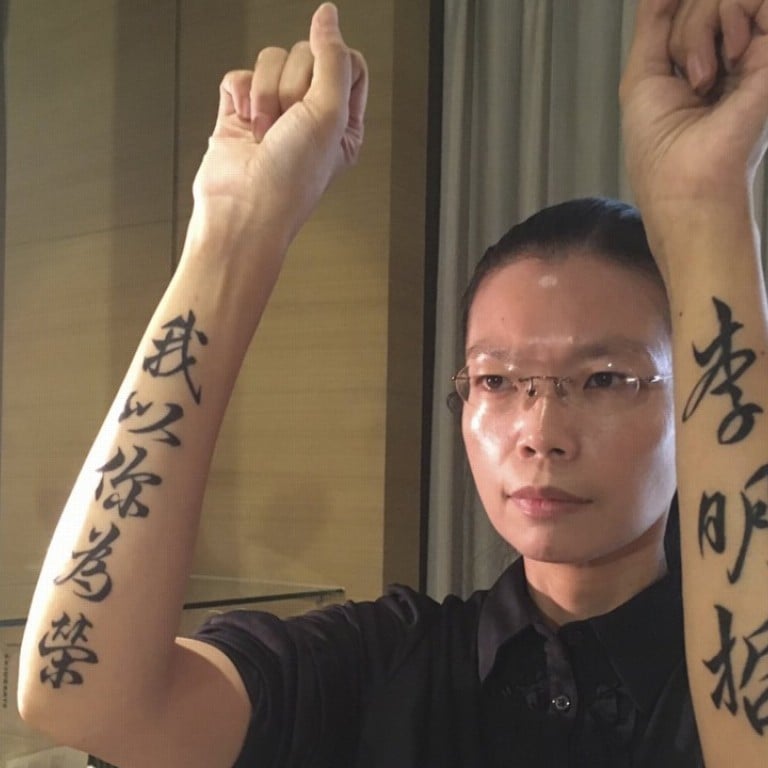
Wife of Taiwanese activist detained in mainland China asks for visit
Lee Ching-yu accuses Beijing of denying her husband Lee Ming-che and family members basic legal guarantees
The wife of a Taiwanese pro-democracy activist put on trial in mainland China for subverting state power is asking for a visit with her husband amid tense relations between Beijing and Taipei.
Lee Ching-yu said Beijing had no right to deprive her of the right to visit her husband, Lee Ming-che, and accused the authorities of denying her husband and family members basic legal guarantees.
Lee Ming-che’s detention is “not in compliance with any law or procedure and violates human rights conventions. [Mainland Chinese authorities] failed to notify family members, denied them the right to visit, and ignored the requests of a civilised society”, Lee said.
Lee Ming-che conducted online lectures on Taiwan’s democratisation and managed a fund for families of political prisoners in mainland China. He was detained upon crossing the border in southern China on March 19 and was put on trial earlier this month. No verdict has been announced.
At a news conference on Wednesday, a mainland cabinet spokesman did not comment directly on Lee’s case, but said recognition of Taiwan as a part of China was becoming a global trend. A former Japanese province, Taiwan split from the mainland amid civil war in 1949 and Beijing cut off contacts with the administration of Taiwan’s President Tsai Ing-wen last year after she refused to endorse Beijing’s position that Taiwan is a part of China’s territory.
“We oppose various forms of Taiwan independence activities and are willing to continue to expand cross-strait communications, promote cross-strait economic and social integration and enhance support and close relations between the cross-strait compatriots,” Taiwan Affairs Office spokesman Ma Xiaoguang said.
In response, newly appointed Taiwanese Premier William Lai reiterated that the self-governing island democracy of 23 million encompassed all the attributes of a sovereign nation, although it had yet to declare itself formally independent from mainland China.
“No matter from which aspect, Taiwan is a sovereign country,” Ma said.

